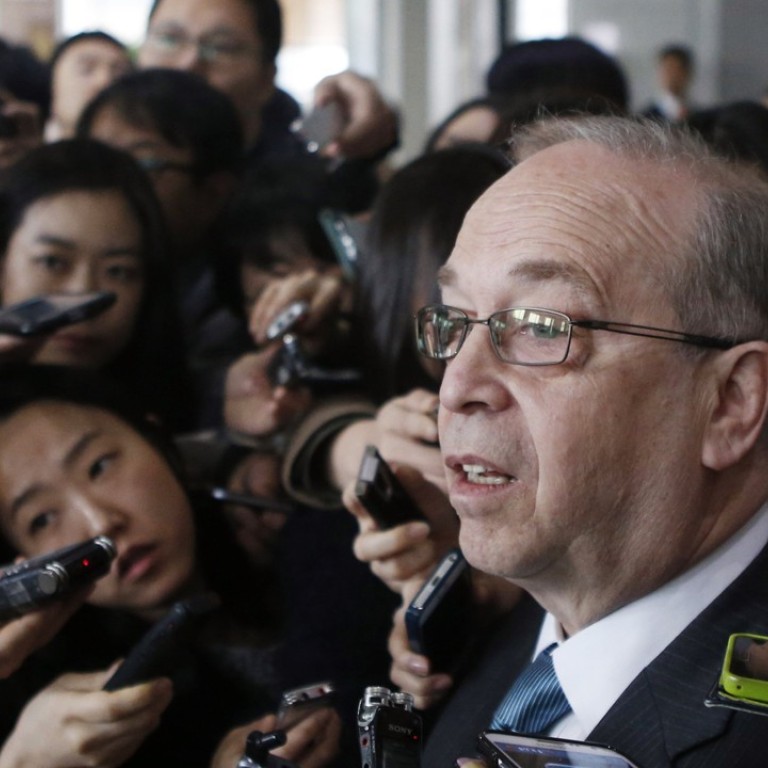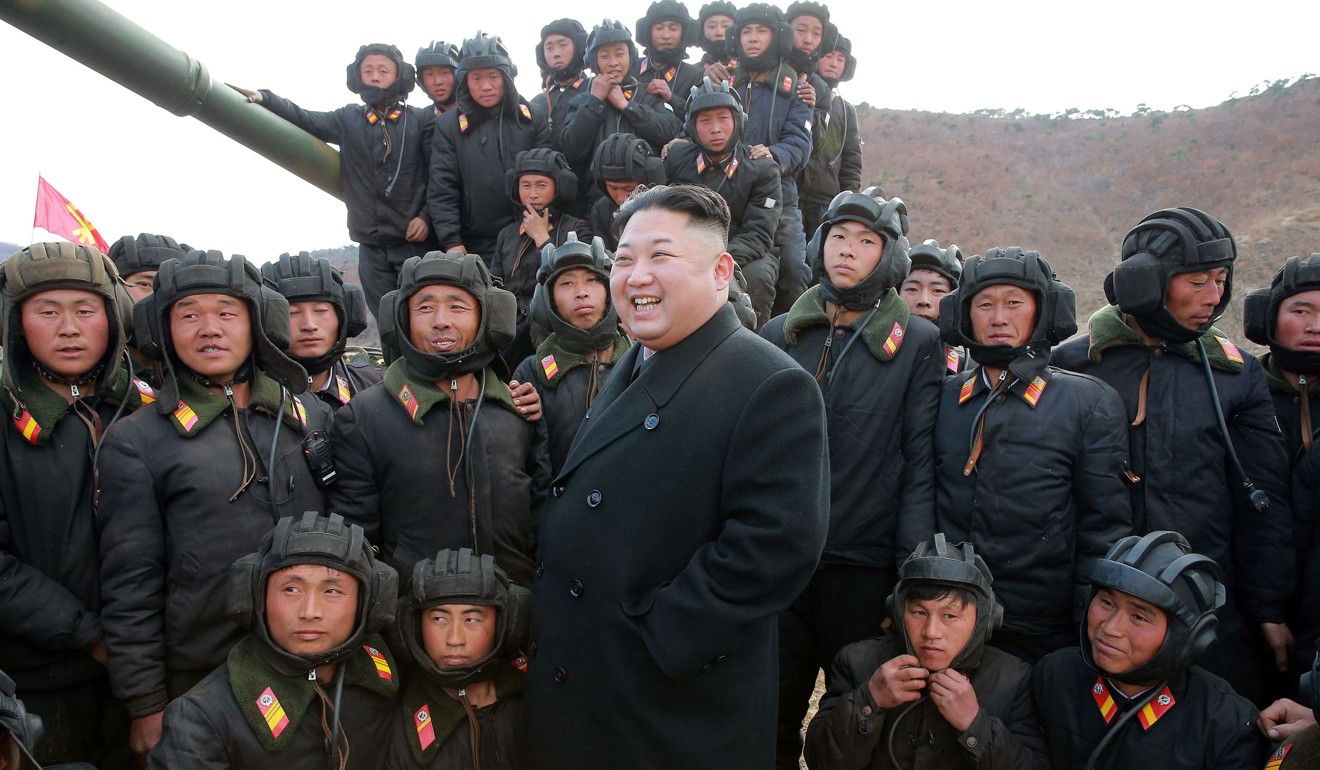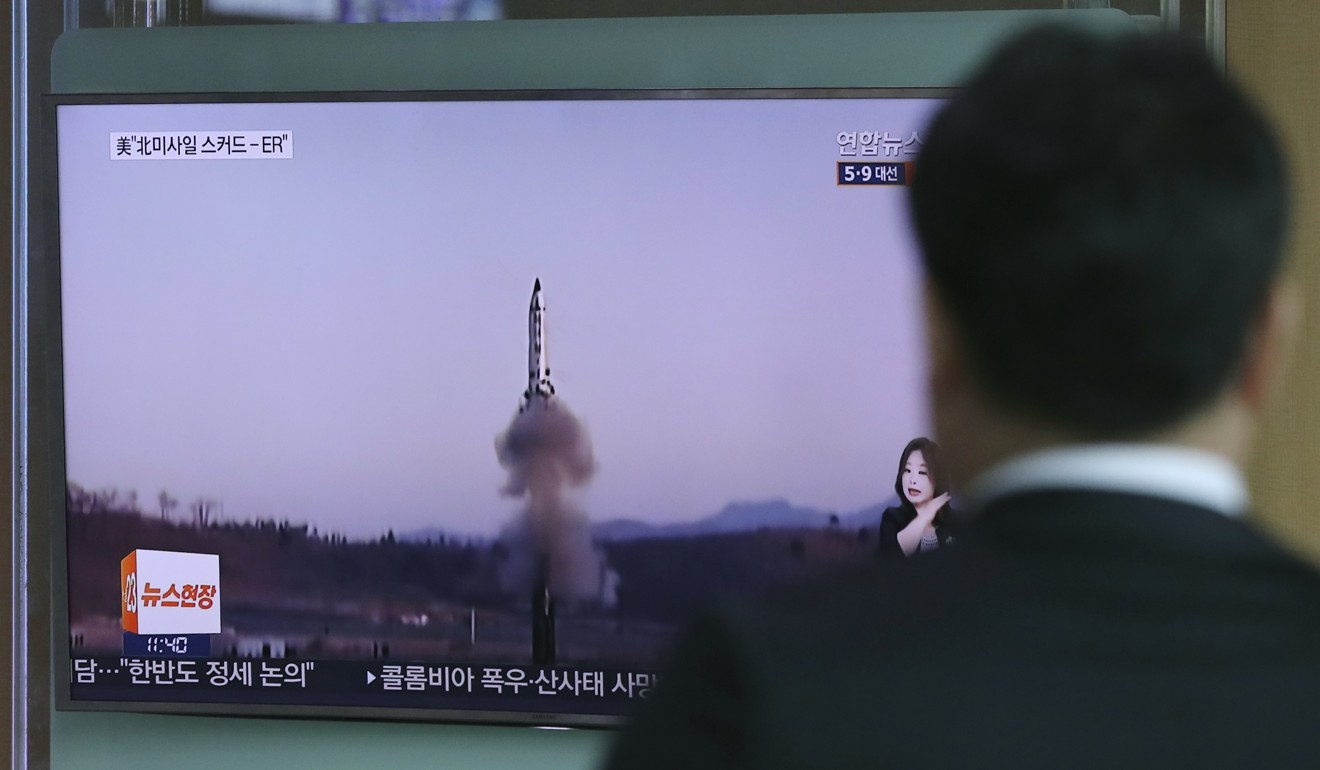
Don’t let Pyongyang exploit mistrust between China and US, ex-US official says
Daniel Russel, former US assistant secretary of state for East Asian affairs, says Beijing and Washington must team up in negotiations with North Korea’s Kim
Beijing should work with Washington to prevent Pyongyang from exploiting mistrust between the United States and China to further North Korea’s nuclear weapons programme, a former senior US official said.
Daniel Russel, who stepped down in March as US assistant secretary of state for East Asian and Pacific affairs, said in an interview that negotiations on halting and scaling back Pyongyang’s nuclear ambition – not nuclear brinkmanship – are the only way to allow North Korean leader Kim Jong-un to get what he wants – security.
“We’re going to see more missile tests and nuclear tests [conducted by North Korea] unless we are working together…with the support of neighbours and [the] international community, to convince Kim that his strategy is simply not going to work,” Russel told the South China Morning Post.

Describing the effort to rein in North Korea’s accelerating nuclear threat as a “psychological battle”, Russel, a senior fellow at the Asia Society in New York who still is an officer in the US foreign service, said prospects for negotiating a breakthrough agreement on denuclearisation with the Kim regime were admittedly “poor”.
However, “as long as the US and China, as well as South Korea, remain united, we should be able to prevail”, he said. “But if we get separated, [and] then North Korea is able to exploit the differences between us, then we’re going to face a real problem.”
Russel’s comments came as North Korea on Monday fired its ninth ballistic missile test this year, the third since Moon Jae-in, who favours engagement with Pyongyang, was elected South Korean president three weeks ago.
The UN Security Council has strongly condemned North Korea’s “flagrant and provocative defiance” of UN sanctions, but an emergency UN meeting a week ago failed to reach a new resolution on North Korea’s missile tests amid Beijing’s reluctance to hit Pyongyang with tough sanctions.
China remains North Korea’s top trade partner and provider of aid. However, relations between the communist neighbours have deteriorated in recent months due to Pyongyang’s continuing nuclear tests, which Beijing sees as a security threat.
Observers say China and the US have edged closer recently, as Beijing increasingly sees North Korea as a liability. But top Chinese leaders apparently are not yet ready to abandon the Kim regime, since the move could have a domino effect, sparking a refugee crisis and plunging the Korean peninsula into chaos.
As Beijing wrestles with the dilemma of keeping the unpredictable North Korean leader in check, top Chinese diplomats, including Foreign Minister Wang Yi and China’s ambassador to the UN, Liu Jieyi, have repeatedly appealed for resuming talks with Pyongyang before further sanctions are imposed.
Russel, who was a member of the US negotiation team dealing with North Korea under the administration of Bill Clinton, said Chinese leaders have “no interest” in seeing a crisis on their doorstep: they neither want war nor refugees.

“They worry [that if] the situation…became a lot worse, the regime would collapse and [then] who is going to be in charge of the nuclear weapons?” Russel said.
Although the US had explicitly ruled out further talks with Pyongyang unless the government took verifiable action to freeze its weapons programme, US President Donald Trump said in early May that he would be “honoured” to meet Kim Jong-un “under the right circumstances”.
Russel was viewed as the face of America’s “rebalance” to Asia, the signature foreign policy of former President Barack Obama. During the interview, Russel pointed out that “some differences and mutual suspicion” exist between the US and China over North Korea.
While Beijing has prioritized preventing Pyongyang from conducting its sixth nuclear test, Washington is concerned about North Korea gaining the capability to reach the US mainland with nuclear missiles within three years.
Since the first summit between Trump and Chinese President Xi Jinping, Beijing and Washington have appeared inclined to work together with the goal of putting pressure on North Korea while setting aside their different and often conflicting interests on trade and security.
“I think Beijing and Washington agree that Kim Jong-un is an irresponsible leader who is threatening regional security,” Russel said. But to make such a consensus work, “there needs to be trust”.
Russel’s remarks appeared to be in line with those of another top US diplomat, Susan Thornton, during a trip to Beijing last week.
Thornton, acting assistant secretary of state for East Asian and Pacific affairs, said Beijing understands the US views the North Korea situation as an urgent “time-limited problem set”.
“So they know now that they don’t have, I think, as much time to try to bring the North Koreans to the table to get their calculus changed,” she said. “And I think that has lent some urgency to their measures.”
Russel suggested that international sanctions, especially China’s sweeping ban in February on coal imports from North Korea, have dealt a tremendous blow to Pyongyang, leading to increasing signs the Kim regime may be on the verge of losing power.
“He’s moving faster and trying harder,” Russel said of Kim. “Possibly it’s a sign of desperation. But Kim is unlikely to back off on his effort to intimidate other nations “unless that he is convinced by the evidence that his strategy based on threats is not going to work.
“Neither China nor the US is going to allow North Korea to blackmail us,” Russel said. “To keep us safe, we have to make it so difficult for Kim Jong-un to keep his system going that compromise becomes the only choice.”
Additional reporting by Shi Jiangtao

